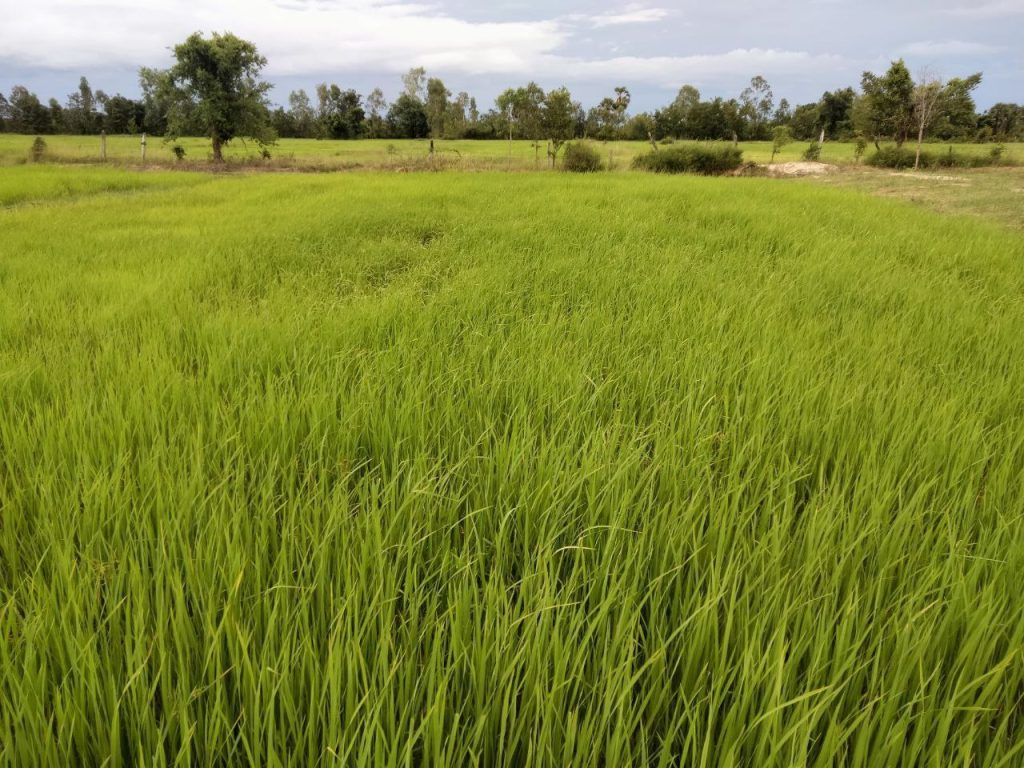Guide for Commune Agriculture Officers (03/2025)
By Yang Saing Koma (MAFF), 31 August 2025
The rising cost of fertilizers is one of the major challenges in rice farming. It directly affects farmers’ income and the long-term sustainability of rice production.
Causes of Increasing Fertilizer Expenses:
- Inappropriate use of fertilizers
- Lack of integration between fertilizer application and other good farming practices
- High procurement costs of fertilizers
To address these issues, Commune Agricultural Officers (CAOs) of MAFF are guided to work with farmers to adopt the following practices:
1). Correct and Efficient Use of Fertilizers
- Avoid relying solely on NPK fertilizers by combining organic and inorganic sources.
- Apply organic fertilizers as basal inputs, and use NPK as top dressing, split into two or three applications with appropriate proportion of NPK according to the growth stage of crops.
- Use foliar fertilizers as supplementary application to improve nutrient-use efficiency and help crops grow quickly after experiencing short-term problems.
- Integrate the use of TE/Micronutrients, humic acid and amino acid to improve root and crop growth, to increase yield and improve overall efficiency of fertilizers
2). Integrating Fertilizer Use with Other Improved Practices of Sre Laar (SRL)/System of Rice Intensification (SRI)
- Use high-quality seeds with the right seeding density.
- Improve land leveling to ensure even fertilizer distribution and efficiency.
- Apply improved water management, especially Alternate Wetting and Drying (AWD), to promote stronger root growth.
- Combine fertilizers with other good farming practices for maximum efficiency, such as minimum tillage, green manure, crop rotation, mulching, not burning of rice straw etc.
3). Cooperative Procurement of Fertilizers
- Organize farmers to purchase fertilizers in bulk, lowering purchase prices through collective bargaining.
4). Promoting Local Soil Fertility Management
- Increase production and use of compost and green manures.
- Practice stubble incorporation to recycle nutrients back into the soil.
- These measures reduce dependence on purchased fertilizers while enhancing long-term soil fertility.
CAOs are advised to work with farmers to develop appropriate formulas for fertilizer use according to the specific conditions of farmer fields, crop variety and season. Case experiences of farmers in successfully improving the efficiency of fertilizers use are encouraged to be documented for wider dissemination to farmers. Our goal is to increase efficiency and sustainability of fertilizers for the benefits of farmers and the environment and to reduce dependency on chemical fertilizers.
In conclusion, the adoption of these combined measures will bring following benefits:
- Improve fertilizer-use efficiency and reduce production costs.
- Enhance plant and soil health.
- Reduce or even eliminate pesticide use by fostering stronger, healthier plants.
- Contribute to the long-term sustainability of rice farming while increasing farmers’ net income.

